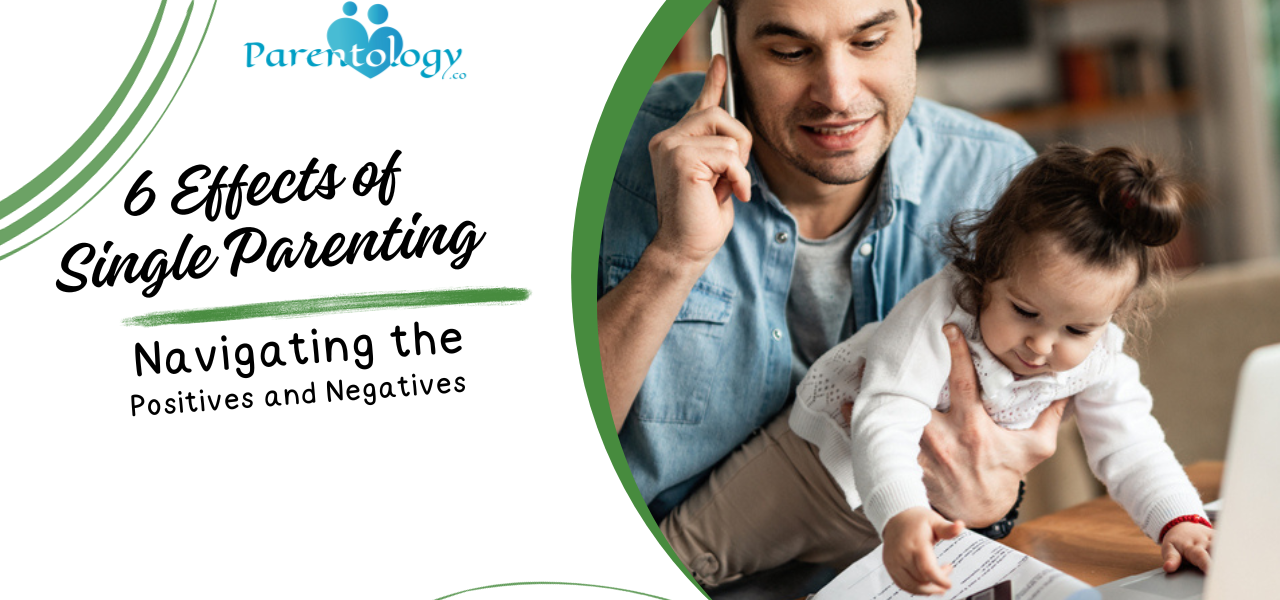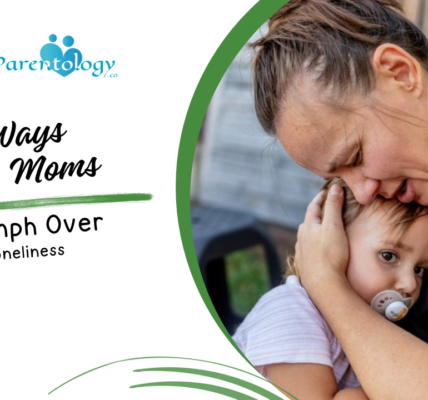6 Transformative Effects of Single Parenting: Navigating the Positives and Negatives
Being a single parent comes with a unique set of challenges and rewards. This article delves into the six transformative effects of single parenting, offering insights to empower single parents and shed light on the dynamics within single-parent households.
Positive Effects of Single Parenting:
1. Stronger Bonding:
Single parenting fosters a profound and intimate bond between the parent and child. With undivided attention and reliance on each other, single-parent households often nurture a deep, unbreakable connection. Daily interactions and shared responsibilities create a strong foundation of trust and understanding, enhancing the emotional closeness between parent and child.
2. Increased Independence:
Children raised by single parents tend to develop higher levels of independence from an early age. They often take on responsibilities and contribute to household tasks, learning self-reliance and problem-solving skills. This independence helps shape their character, making them resilient individuals capable of tackling life’s challenges confidently.


3. Enhanced Empathy:
Single parents serve as powerful role models for their children, imparting valuable lessons in empathy and compassion. Through witnessing their parent’s strength in facing difficulties, children learn to understand and support others. This firsthand experience instills a profound sense of empathy, encouraging kindness and consideration towards others in their interactions.
4. Improved Communication Skills:
In single-parent households, communication becomes a crucial aspect of daily life. Parents and children often engage in open, honest conversations, fostering an environment where communication skills are honed. Children raised in such an environment tend to express themselves more effectively, articulate their thoughts, and develop active listening skills.
5. Close-knit Family Relationships:
The smaller family unit in single-parent households often leads to closer, more intimate relationships. With fewer members, family dynamics encourage stronger connections, enabling quality time and shared experiences that forge lasting bonds among family members.
6. Resilience and Adaptability:
Living in a single-parent household cultivates resilience and adaptability in children. They learn to navigate changes and uncertainties, developing the ability to adapt to different circumstances. This adaptability helps them face life’s transitions with confidence and agility, preparing them for future challenges.


Negative Effects of Single Parenting:
1. Financial Strain:
Single parents often face significant financial challenges. Balancing the roles of caregiver and provider on a single income can lead to financial stress. Limited resources may affect the family’s quality of life, impacting access to education, healthcare, and extracurricular activities for children.
2. Emotional Stress:
Both parent and child may experience emotional stress due to the absence or strained relationship with the other parent. Single parents often bear the weight of emotional responsibilities, managing their emotions while supporting their children through challenging situations.
3. Increased Responsibilities:
Single parents shoulder multiple responsibilities, from household chores to financial management and parenting duties. Juggling these tasks can be overwhelming, leading to fatigue, burnout, and limited personal time.
4. Social Pressures:
Single-parent families might face societal stigma or feel isolated, impacting their social interactions. Children might encounter challenges in social settings, potentially affecting their self-esteem and sense of belonging.
5. Lack of Support System:
Single parents may experience a lack of support due to the absence of a co-parent. This absence can make it challenging to find time for self-care, seek advice, or share the responsibilities of parenting.


6. Potential Behavior Challenges in Children:
Children raised in single-parent households might exhibit behavioral challenges due to the stress and adjustments associated with the family structure. These challenges could manifest as difficulties in school, emotional disturbances, or behavioral issues.
Overcoming Challenges & Embracing Positivity
Strategies for Single Parents:
Building Support Networks:
Seeking support from friends, family, local community groups, or online parenting forums can provide valuable emotional and practical assistance. Establishing a strong support network can alleviate the burden of responsibilities and offer guidance during challenging times.
Effective Time Management:
Single parents often face time constraints. Prioritizing tasks, setting realistic schedules, and delegating responsibilities where possible can help manage time efficiently, allowing for quality time with children and personal pursuits.
Financial Planning and Assistance:
Exploring available financial aid, budgeting effectively, and seeking employment opportunities or additional sources of income can help alleviate financial strain. Government assistance programs and community resources might offer support for single-parent households.
Open Communication:
Maintaining open, honest communication with children is vital. Encouraging dialogue about emotions, changes, and challenges fosters trust, strengthens relationships, and helps children feel supported.
Self-Care and Well-being:
Taking time for self-care is crucial for single parents. Prioritizing personal well-being through activities like exercise, hobbies, or seeking counseling can help manage stress and promote mental health.
Co-Parenting and Collaboration:
Where possible, fostering positive communication and collaboration with the other parent, if involved, can benefit the child’s well-being. Co-parenting effectively can provide stability and support for children.


Addressing Social Stigma and Building Resilience
Coping with Societal Perceptions:
Education and Awareness:
Promoting awareness and educating others about the diversity and strengths within single-parent families can help reduce societal stigma. Advocacy and participation in community events can foster understanding and acceptance.
Encouraging Self-Esteem in Children:
Empowering children by instilling a strong sense of self-worth and confidence helps them navigate societal pressures. Emphasizing their strengths, talents, and achievements fosters resilience against potential stigmatization.
Creating Supportive Environments:
Engaging with support groups or local organizations for single-parent families can provide a sense of belonging. Participating in community activities and events fosters connections and mutual support among families facing similar challenges.
Impact on Children’s Development and Well-being
-
Nurturing Children’s Growth:
Educational Support:
Engaging with teachers and school counselors can help provide additional support for children’s educational needs. Seeking resources and programs tailored for children from single-parent households can enhance their academic success.
-
Emotional Guidance:
Providing a safe space for children to express their emotions and offering guidance through difficulties fosters emotional resilience. Encouraging healthy coping mechanisms and validating their feelings promotes emotional well-being.
-
Building Positive Relationships:
Facilitating opportunities for children to build positive relationships with peers and mentors enriches their social experiences. Engaging in extracurricular activities and community involvement nurtures social skills and a sense of belonging.
Legal and Custodial Aspects in Single Parents Families
-
Understanding Legal Rights:
Custodial Arrangements:
Navigating custody arrangements and legal rights is essential for single parents. Understanding custody agreements, visitation rights, and legal documentation ensures clarity and stability for both the parent and the child.
-
Seeking Legal Counsel:
Consulting legal professionals specializing in family law can provide invaluable guidance. Legal advice helps single parents understand their rights, obligations, and the necessary steps to ensure legal protection for their family.
-
Child Support and Financial Responsibilities:
Understanding the legal aspects of child support, including entitlements and obligations, is crucial. Establishing clear financial agreements and obligations with the other parent or legal entities ensures financial stability for the child.
Parenting Strategies and Child Development
-
Nurturing Child Well-being:
Consistent Parenting Approach:
Maintaining consistency in parenting styles and routines fosters stability for children in single-parent households. Clear boundaries, consistent rules, and routines provide a sense of security and predictability.
-
Quality Time and Emotional Support:
Prioritizing quality time spent with children and offering emotional support is paramount. Active listening, validating feelings, and engaging in meaningful activities strengthen the parent-child relationship.
-
Positive Discipline Techniques:
Implementing positive discipline techniques helps in guiding children’s behavior. Encouraging positive reinforcement, communication, and setting reasonable consequences fosters a supportive environment for children’s growth.
Building Resilience and Future Planning
Empowering for the Future:
Fostering Resilience:
Instilling resilience in children by encouraging problem-solving skills and adaptability prepares them for life’s challenges. Teaching them to view setbacks as opportunities for growth builds resilience.
Educational and Career Planning:
Supporting children’s educational pursuits and career aspirations is crucial. Providing guidance, exploring educational opportunities, and planning for future career paths empowers children for their future.
Setting Goals and Aspirations:
Encouraging children to set achievable goals and nurturing their aspirations instills a sense of purpose and motivation. Helping them envision a future and supporting their dreams is essential for their growth.
FAQs on Single Parents:
1. How can single parents build a support network?
Seek out local community groups, join parenting forums, or connect with family and friends for support.
2. Are there advantages to being single parents?
Yes, increased bonding, independence, and empathy building are some positive aspects of single parenting.
3. What financial assistance is available for single parents?
Government aid, child support, and community organizations often provide financial assistance.
4. How can single parents manage emotional stress?
Practicing self-care, seeking therapy or counseling, and fostering open communication within the family can help manage emotional stress.
5. What impact does single parenting have on children’s development?
While challenges exist, children in single-parent households can develop resilience, independence, and empathy.
6. How can single parents help their children navigate societal pressures?
Encouraging open conversations, fostering self-confidence, and providing a supportive environment can help children cope with societal pressures.
7. Can co-parenting help mitigate the negatives of single parenting?
Co-parenting can be beneficial if both parents actively participate and maintain positive communication for the well-being of the child.
8. What are some ways single parents can foster independence in their children?
Encouraging age-appropriate responsibilities, decision-making, and problem-solving can help foster independence in children.
9. How can single parents manage financial strain effectively?
Budgeting, seeking employment opportunities, and exploring available financial resources can help manage financial strain.
10. How important is communication within single-parent families?
Open and honest communication is vital for fostering trust, understanding, and support within single-parent families.
Conclusion: Empowering Single Parents Families
Navigating the intricacies of single parenting requires resilience, adaptability, and a proactive approach to address challenges and embrace opportunities. By fostering strong bonds, nurturing independence, and advocating for support, single parents can create enriching environments for their children’s growth.
Understanding the positive effects and challenges of single parenting equips individuals with insights to leverage strengths and mitigate potential difficulties. With a supportive network, effective communication, and a focus on their children’s well-being, single parents can foster a nurturing and fulfilling family life.
Parentology stands as a valuable resource, offering expert advice, tools, and a supportive community for single parents embarking on this journey. Their diverse range of content caters to the unique needs of single-parent households, empowering them to navigate challenges with confidence and positivity.



